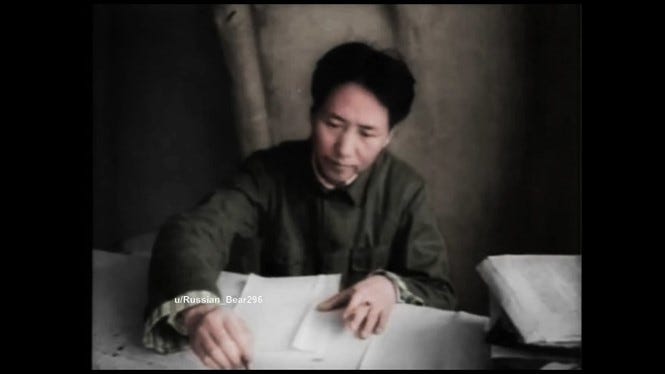An Untitled Piece - 1923
[a tsu, to the melody Good Wishes to the Bridegroom, Ho Hsin-lang]
[translated by Nancy Lin]
A hand waving
And I’ll be off!
Hard it is
That we stand here
Facing each other sorrow laden,
And once again dip in heart outpourings.
Regret seems to lurk behind our glances
And brood over the tips of our eyebrows.
Hot tears, welling up,
Are checked in vain.
Know then that about the previous letter
There has been a misunderstanding!
Floods of events
May keep rolling by,
Dense as fog.
You and I at least
Know each other and understand.
Ay, humans ail
If heaven sees!
Morning frost lies thick
Along East Gate Road.
The waning moon, half way down the sky,
Casts a gleam on the pool ahead,
So pale and so chill.
Then the blast of the whistle
To the break of our hearts!
Henceforth I’m destined to the sky’s edge,
A lone traveller. –
But no! Away with these chains of sorrow,
And strings of regret!
Let us be as the Kunlun
That lops off its precipice,
Or the typhoon sweeping the earth.
We shall pair our wings again
And soar with the clouds!
Notes [by Nancy Lin]
October 1921, the Hunan Provincial Branch of the Chinese Communist Party was established with headquarters at Changsha. Here in an inconspicuous house outside the Little-Wu Gate, the poet worked with his wife Yang Kai-hui for nearly a year and a half when he had to leave Changsha for activities elsewhere. This poem was written in early 1923 as he was parting with Yang. Yang, it may be noted, joined Mao later as an active participant in the revolutionary struggles in Shanghai, Canton, Wuhan, and elsewhere until she met her death at the hands of the Hunan warlords in November 1930.
This poem should be read in conjunction with Poems of Mao # 24 (Reply to Li Shu-yi), to get a full view of the deep sentiment the poet held for Yang.
The formal publication (September 1978) for the first time of this lyric of a pronouncedly personal intimate note is significant as an added signal to remove the taboo imposed by the ‘gang of four’ on taking love as a theme in art and literature.
An added Note: this untitled poem is the first surviving poem of Mao Tse-tung.
Both this first poem from when he was a young 27-year-old in 1923, and one of his last poems ‘On History’ (Poems of Mao # 36) from when he was 70-years-old in 1964, were written to the same melody, and should be compared, from a longing of his wife and his hope for their future - ‘We shall pair our wings again, And soar with the clouds!’, to his longing for man’s past, and a hope of man’s future - ‘The song is not all sung, When day breaks in the east’.
Our poet passed away on September 9th 1976 at 82 years-of-age.



